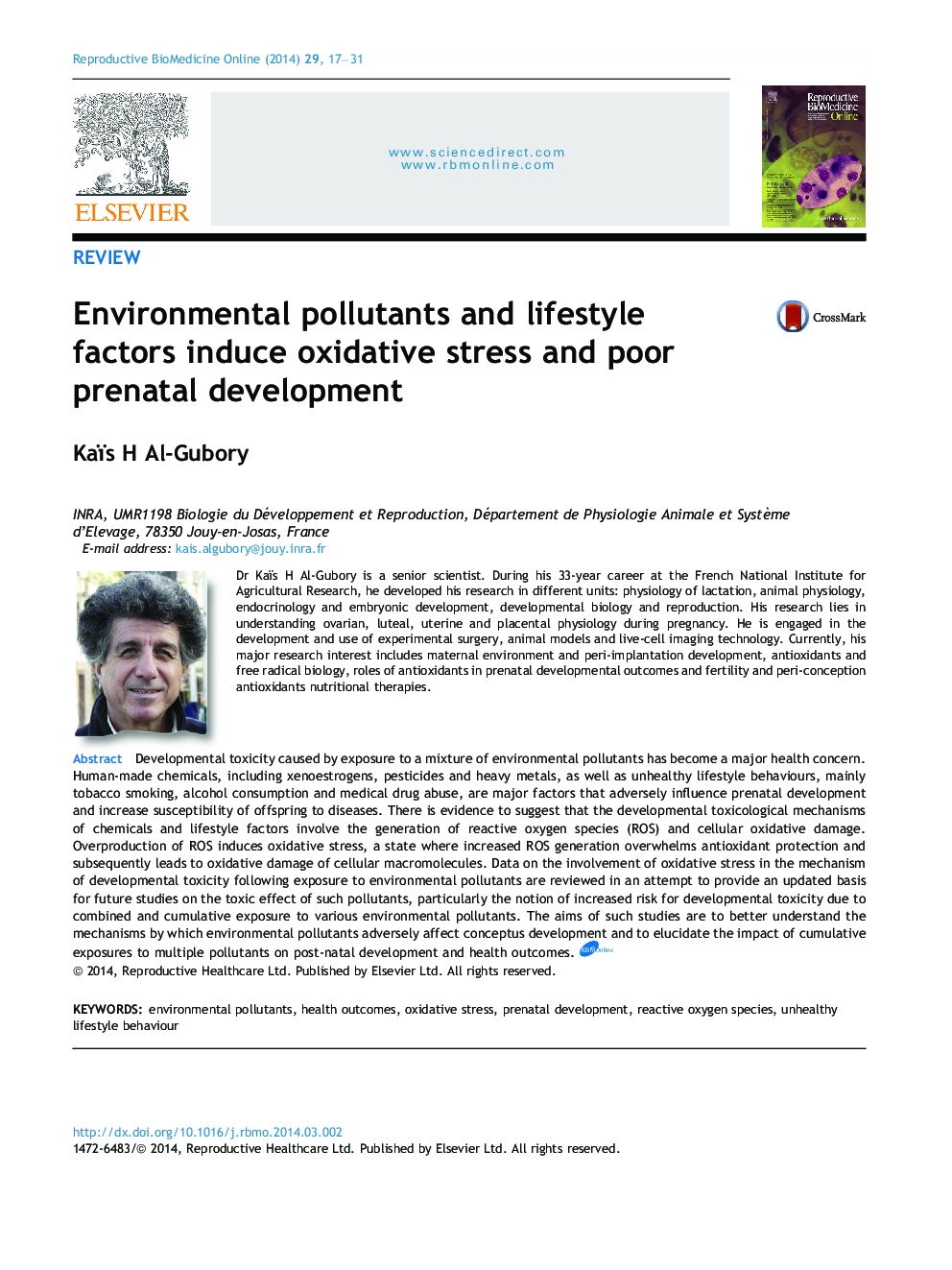| Article ID | Journal | Published Year | Pages | File Type |
|---|---|---|---|---|
| 3970138 | Reproductive BioMedicine Online | 2014 | 15 Pages |
Developmental toxicity caused by exposure to a mixture of environmental pollutants has become a major health concern. Human-made chemicals, including xenoestrogens, pesticides and heavy metals, as well as unhealthy lifestyle behaviours, mainly tobacco smoking, alcohol consumption and medical drug abuse, are major factors that adversely influence prenatal development and increase susceptibility of offspring to diseases. There is evidence to suggest that the developmental toxicological mechanisms of chemicals and lifestyle factors involve the generation of reactive oxygen species (ROS) and cellular oxidative damage. Overproduction of ROS induces oxidative stress, a state where increased ROS generation overwhelms antioxidant protection and subsequently leads to oxidative damage of cellular macromolecules. Data on the involvement of oxidative stress in the mechanism of developmental toxicity following exposure to environmental pollutants are reviewed in an attempt to provide an updated basis for future studies on the toxic effect of such pollutants, particularly the notion of increased risk for developmental toxicity due to combined and cumulative exposure to various environmental pollutants. The aims of such studies are to better understand the mechanisms by which environmental pollutants adversely affect conceptus development and to elucidate the impact of cumulative exposures to multiple pollutants on post-natal development and health outcomes.Developmental toxicity caused by exposure to mixture of environmental pollutants has become a major health concern. Human-made chemicals, including xenoestrogens, pesticides and heavy metals, as well as unhealthy lifestyle behaviors, mainly tobacco smoking, alcohol consumption and medical drug abuse, are major factors that adversely influence prenatal development and increase the susceptibility of offspring to development complications and diseases. There is evidence to suggest that the developmental toxicological mechanisms of human-made chemicals and unhealthy lifestyle factors involve the generation of reactive oxygen species (ROS) and cellular oxidative damage. Overproduction of ROS induces oxidative stress, a state where increased generation of ROS overwhelms antioxidant protection and subsequently leads to oxidative damage of cellular macromolecules. Exposure to various environmental pollutants induces synergic and cumulative dose-additive adverse effects on prenatal development, pregnancy outcomes and neonate health. Data from the literature on the involvement of oxidative stress in the mechanism of developmental toxicity following in vivo exposure to environmental pollutants will be reviewed in an attempt to provide an updated basis for future studies on the toxic effect of such pollutants, particularly the notion of increased risk for developmental toxicity due to combined and cumulative exposure to various environmental pollutants. The aims of such studies are to better understand the mechanisms by which environmental pollutants adversely affect conceptus development and to elucidate the impact of cumulative exposures to multiple pollutants on postnatal development and health outcomes.
